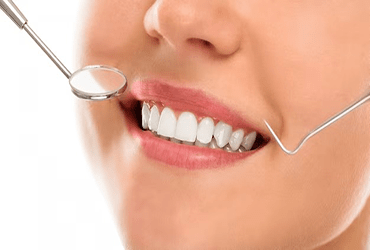Busting Crazy Dental Myths: Unraveling the Truth for Healthy Smiles
Dental health is a topic surrounded by various myths and misconceptions that have been passed down through generations. These myths can lead to confusion and may even prevent individuals from adopting proper oral care practices. In this blog post, we’ll debunk some of the most common and crazy dental myths to help you separate fact from fiction and maintain a healthy smile.
Myth 1: “Brushing Harder Cleans Better”
One of the most persistent myths is the belief that brushing your teeth harder will result in a cleaner, healthier mouth. However, this couldn’t be further from the truth. Brushing too hard can actually harm your teeth and gums. Aggressive brushing can lead to enamel erosion, gum recession, and increased tooth sensitivity.
The Truth: Use a soft-bristled toothbrush and gentle, circular motions to clean your teeth effectively. Applying too much pressure can cause more harm than good. Remember, it’s about thoroughness, not force.
Myth 2: “Sugar-Free Gum is as Good as Brushing”
Chewing gum can be a good way to freshen your breath and stimulate saliva production, but it’s not a substitute for brushing and flossing. Some people believe that sugar-free gum can replace these essential oral hygiene practices.
The Truth: While sugar-free gum can help reduce plaque and neutralize acids, it doesn’t replace the mechanical action of brushing or the cleaning between teeth that flossing provides. Stick to your regular oral care routine for optimal results.
Myth 3: “I Don’t Need to See the Dentist if My Teeth Aren’t Hurting”
This myth is a dangerous one that can lead to delayed detection of dental issues. Some people believe that as long as they don’t experience pain, there’s no need to visit the dentist.
The Truth: Regular dental check-ups are crucial for preventive care. Dentists can identify and address issues in their early stages, often before symptoms appear. Waiting until you’re in pain may mean more extensive and expensive treatments down the road.
Myth 4: “You’ll Lose a Tooth for Every Pregnancy”
Pregnant women sometimes hear the myth that they will lose a tooth for each pregnancy. This notion is based on the belief that the developing fetus will deplete the mother’s calcium, causing tooth loss.
The Truth: Pregnancy does increase the risk of dental issues like gum disease due to hormonal changes, but it doesn’t automatically lead to tooth loss. Maintaining good oral hygiene during pregnancy, including regular dental check-ups, can help prevent these issues.
Myth 5: “If My Gums Bleed, I Should Avoid Brushing Them”
Some people avoid brushing their teeth or gums if they notice bleeding during oral care, thinking it’s best not to aggravate the situation.
The Truth: Bleeding gums are often a sign of gum disease or inadequate oral hygiene. Rather than avoiding brushing, it’s essential to address the root cause. Gentle and consistent brushing, along with flossing, can help improve gum health. If bleeding persists, consult with your dentist.
Myth 6: “I Only Need to See the Dentist When I Have a Problem”
Many individuals believe that dental visits are only necessary when experiencing pain or noticeable issues.
The Truth: Preventive care is the foundation of good oral health. Regular dental check-ups can catch problems early or even prevent them altogether. Professional cleanings, X-rays, and examinations are essential for maintaining optimal dental wellness.
Myth 7: “Natural Sugar Doesn’t Cause Cavities”
Some people believe that as long as they consume natural sugars found in fruits and honey, they are exempt from the risk of cavities.
The Truth: While natural sugars may be less processed and come with additional nutrients, they can still contribute to tooth decay if not managed properly. Brushing and flossing after consuming sugary foods, even natural ones, is crucial for maintaining oral health.
Myth 8: “Dental Health Is Only About Teeth”
Another myth is the misconception that dental health only involves taking care of your teeth, neglecting other aspects of oral care.
The Truth: Dental health encompasses the entire oral cavity, including the gums, tongue, and surrounding tissues. Regular brushing, flossing, and tongue cleaning are essential for comprehensive oral care.
In conclusion, separating dental myths from reality is crucial for maintaining optimal oral health. By debunking these crazy dental myths, we hope to empower individuals to make informed decisions about their oral care practices. Remember, regular dental check-ups, a proper oral hygiene routine, and a healthy lifestyle contribute to a bright and healthy smile. Don’t let myths stand in the way of your dental well-being—embrace the truth for a radiant smile that lasts a lifetime.

